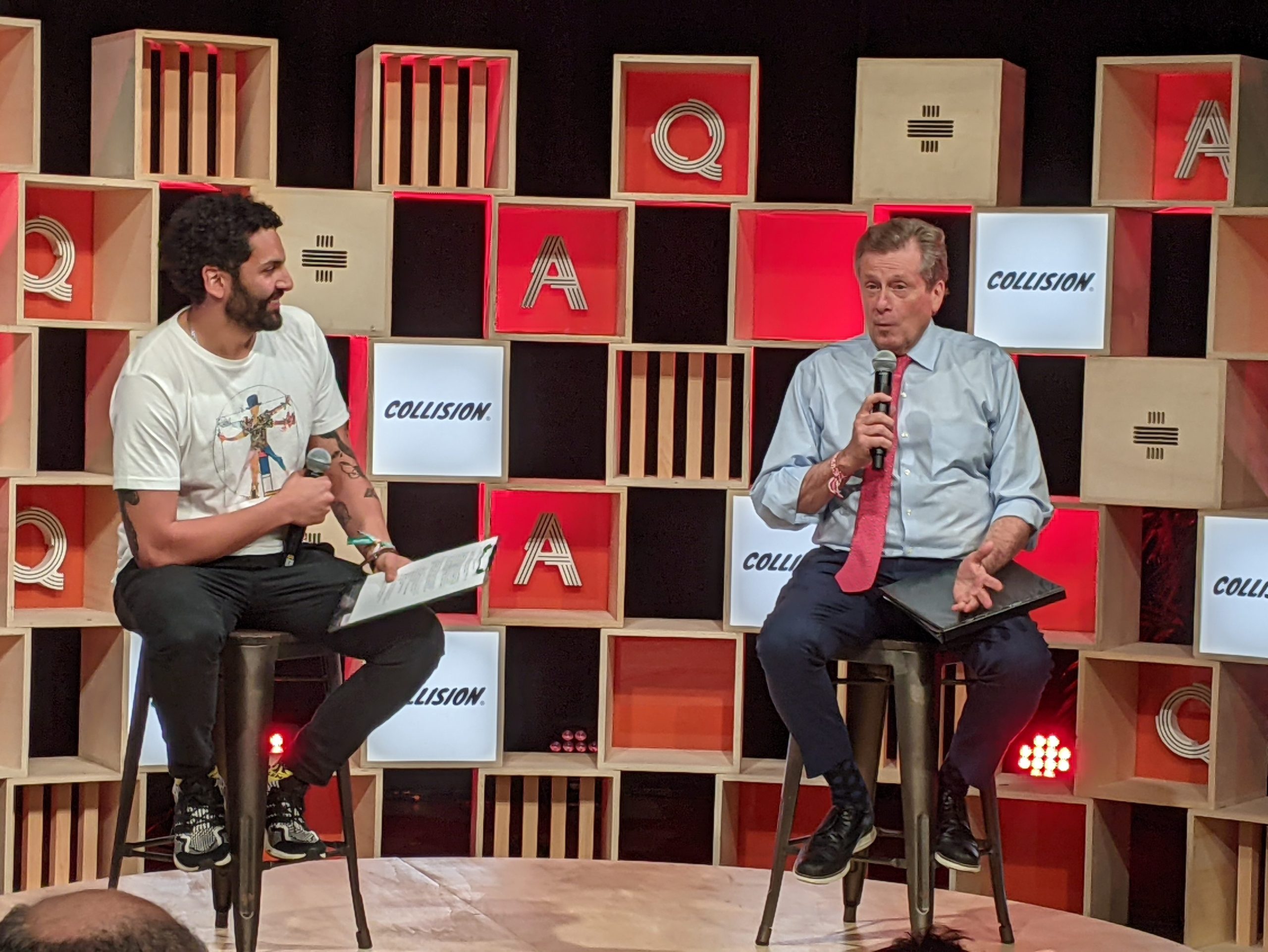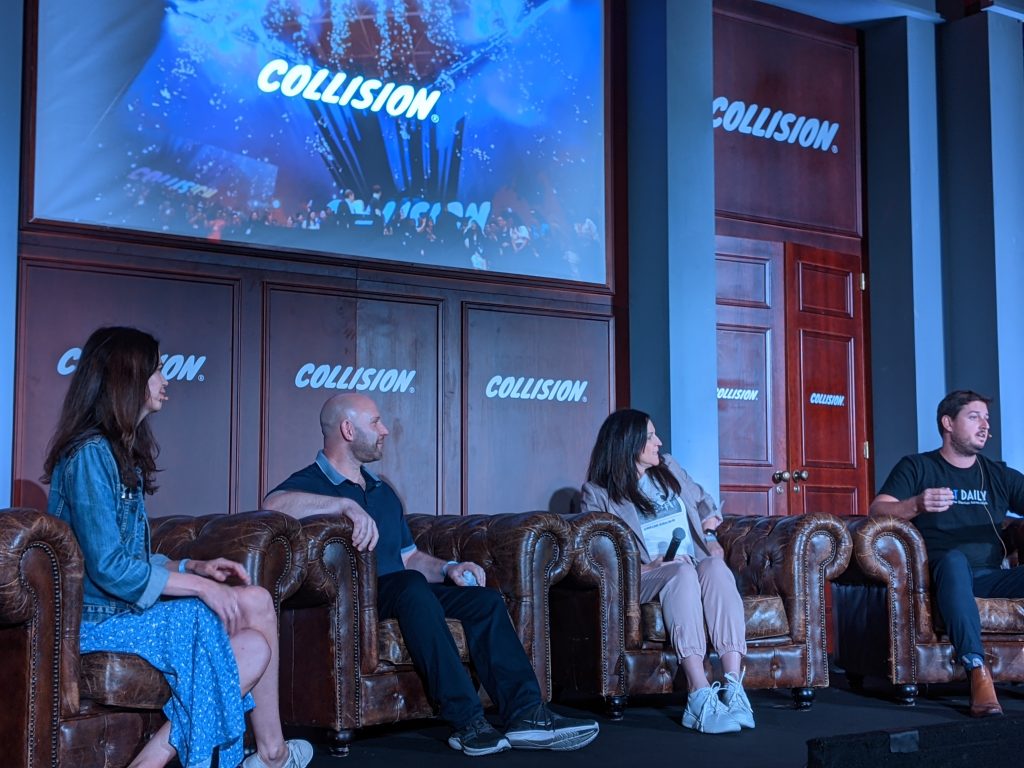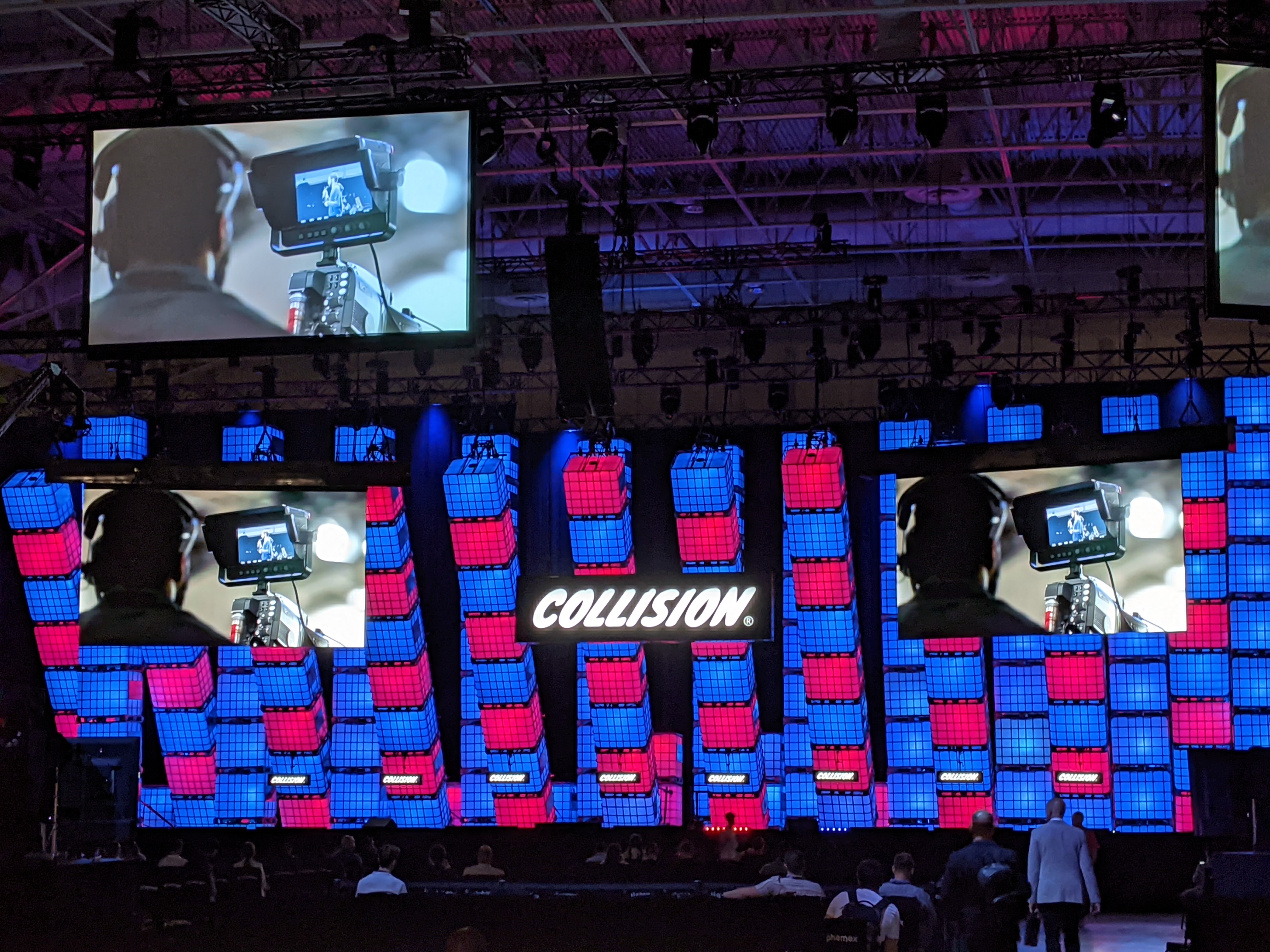It’s back. And it’s a beautiful thing. In spite of all the havoc that the spikey little virus has caused, Collision Conference has found a way to get everyone back together – in person – live from Toronto.
Grit Daily News is on the scene! Here are some highlights from the first full day of the event. Today is also National Indigenous Peoples Day in Canada, so we’ve chosen to lead with some innovative efforts by Indigenous founders.
Indigenous Representation
Brian Ritchie is the founder and CEO of Kama.ai. Artificial intelligence (AI), largely in the form of chat bots, has application in just about every industry today. One of the areas that AI can have tremendous impact is in mental health. Ritchie is a member of the Chapleau Creek Cree Tribe and recently conducted a pilot in healthcare. With the goal of impacting community well-being, Kama has developed technology that engages with people on a human level based on personal values. The pilot showed that people responded favorably, felt connected to their community, and felt less lonely.
Plato Testing is putting Indigenous people to work. Thus far, over 200 jobs have been generated as a result of their training and services platform which provides talent to tech companies seeking quality assurance testing for their software. According to the company’s founder, Keith McIntosh, “This is a $40 billion market where less than 1% is represented by Indigenous talent. We’re doing QA testing today and looking to grow into cybersecurity.”
A Word from the Mayor
Toronto Mayor John Tory addressed the audience in an open Q&A. With Toronto now being recognized as the third-largest tech hub worldwide, the Mayor expressed his enthusiasm for the future potential of the city he governs. He highlighted two reasons for their success as a tech hub: 1) excellent education within the province at the K-12 and post-secondary level; 2) a partnership-based approach which brings government, educators, and businesses together to not only create jobs and drive revenues into the city, but to also generate social dividends. “As I’ve been touring various cities,” the mayor shared, “I’ve been asked why tech likes Toronto. Our values are stable here, there are no corrosive debates about whether someone should have equal rights.” Numerous questions from the audience probed on the homeless situation in the city: the mayor responded with a general plan that offers more personalized support to the individuals in need.

Women in Tech
Women in tech were well represented on the stage and in the startup exhibition hall. Some startups of note include Thymia, Xare, Localyze, and PokPok. Xare, under the leadership of Padmini Gupta, the company’s co-founder and CEO, aims to enable the 4.5 billion people on the planet who don’t work yet control $25 Trillion of the spending. The software enables people to share their credit cards with each other, set purchase limits, and track spending. They are currently the largest global fintech company in the world with nearly two million users. Dr. Cindy Hovington founded PokPok out of a personal need to offer valuable screen time to toddlers: their games inspire creativity. Emilia Molimpakis, PhD is the CEO and co-founder of Thymia which has tapped into the mental health challenge faced by society today. By combining neuroscience with AI, their video games can assess fatigue, stress, depression, and other indicators of poor mental health. Hanna Asmussen, the co-founder and CEO of Localyze, founded the company to streamline visa and travel applications for people on the move and working abroad.
The Investment Perspective
From the investment side, most of the panelists stressed that they remained optimistic, but the trends tell a different story. In general, the later the stage a company is in its growth cycle, the less favorable current conditions are for securing investment. In the “Hard Truths” panel discussion featuring Villi Iltchev (Two Sigma), Beth Ferreira (FirstMark), Logan Bartlett (Redpoint), and Matt Carratt (CRV), moderated by Katie Roof (Bloomberg), the collective advice was to “cut your burn rates.” Series A and B rounds have slowed, valuations are nowhere near their 20-30x peak at the height of the bubble a few months ago, and deals are taking longer to close. Startups are also getting fewer term sheets to consider: investors are allocating their funds as dry powder for follow-on investments with companies already in their portfolios. Down-rounds were forecast by the panel to begin trending.

The situation appears somewhat more promising for seed-stage companies. In a panel discussion moderated by Grit Daily News editor Jordan French, Jenny Fielding (The Fund), Jon Soberg (MS&AD Ventures), and Magaly Charbonneau (Inovia), embraced optimism yet repeatedly referenced the current “shaky times.” The investors advised startups to “grow into their valuations and conserve cash.” Conservatism is not a surprising trend given how second-time founders and YC startups were “getting huge valuations with no real product.” Key metrics of note include how investors are now seeking to invest when a company has 18 months – and up to 2.5 years (according to Inovia) – of runway between raises. With deals taking longer, the panel advised founders to plan wisely. However, they also encouraged startups to keep going because investors are still writing cheques: The Fund wrote 20 cheques in the past quarter alone.
As Day 1 here at Collision Conference winds down, one thing is certain: there’s no end of innovation out there. Startups take grit. Persistence can pay off. Check back tomorrow for more highlights.


